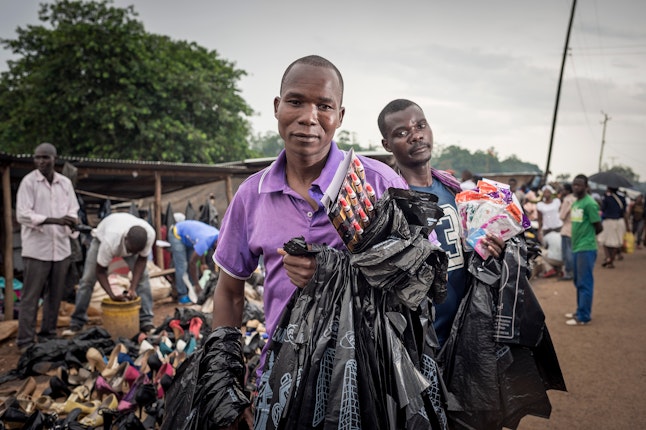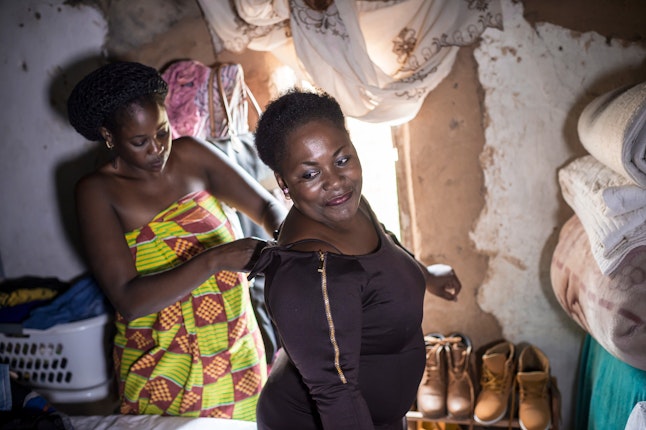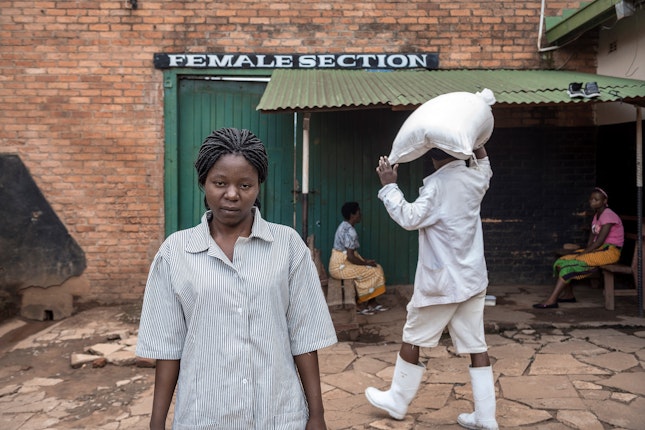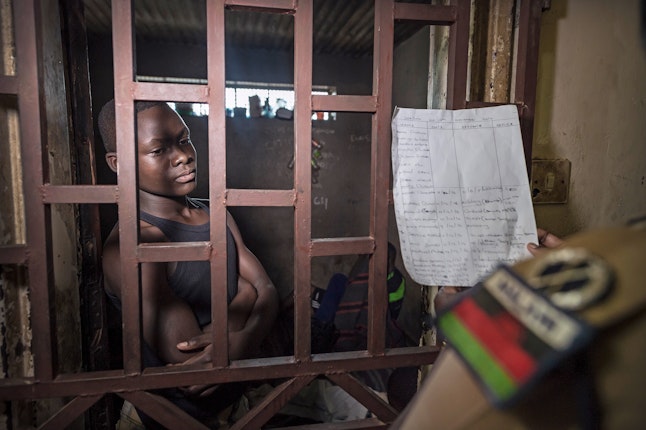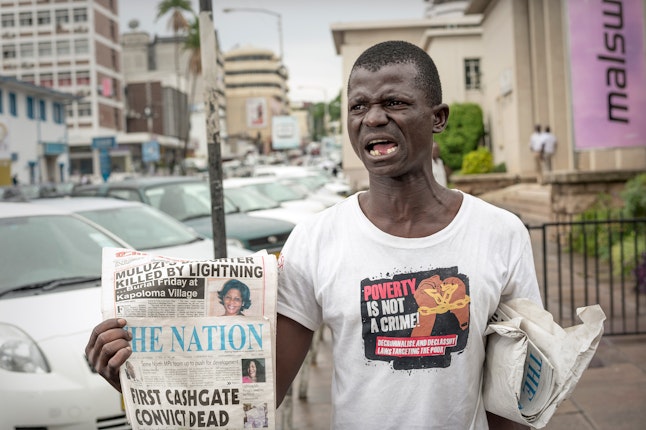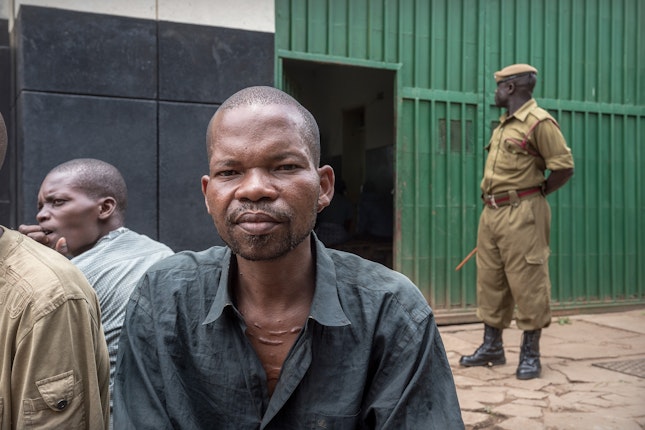“Rogues” and “Vagabonds” No More: Ending Africa’s Imperial Legacy of Absurd Petty Offenses
By Louise Ehlers
At 3 a.m. one March morning, Mayeso Gwanda, an informal trader, left his home in Blantyre, Malawi, and traveled to the nearby Limbe market. He carried with him the plastic bags he sells in order to earn a living.
As he made his way along the road, three police officers intercepted him. One of the officers struck him with the flat side of a knife and demanded money. When he told them he had none, they arrested him for a 192-year-old offense, introduced in Britain during the reign of Queen Victoria and to its colonies in the early 1930s. Mayeso was charged with being “a rogue and a vagabond.”
Meanwhile, in Nairobi, Kenya, a man named James, a well-respected schoolteacher with a psychosocial disability, had missed his medication due to a local drug shortage. Police arrested him as he walked along the road singing, perhaps more loudly than some might have wished. Officers charged him with being an “idle and disorderly person.”
James was held in detention for three months and released without charge—for singing. He has been arrested more than a dozen times for similar transgressions, including being shirtless in public and sleeping on the street. On many of these occasions, the police took him into custody only to release him after a few days.
Mayeso and James’s stories reflect a daily reality for thousands of people in Africa. Across the continent, and indeed in other parts of the world, outdated petty offense laws criminalize actions that pose no threat to public safety. These offenses have their roots in the age of empire lawmaking, through which foreign powers sought to control and segregate local populations.
Imposed decades ago by British, French, and Portuguese colonists, and retained by current African governments long after being repealed in their countries of origin, they continue to make the lives of Africa’s most marginalized more hazardous. Many of these laws against loitering, being “a rogue and a vagabond,” having no “ostensible means of assistance,” or being “idle and disorderly” carry prison terms, and are still in place in Mauritius, Nigeria, Gambia, Zambia, Uganda, Botswana, Seychelles, Ghana, Tanzania, and Sierra Leone.
Vague, disproportionate, and arbitrary in nature, these offenses are used to target street children, the poor, the homeless, LGBTI people, sex workers, hawkers, people with substance use problems, and people with disabilities. They enable law enforcement to target people purely based on their social or economic status.
For James, the laws meant days, sometimes months behind bars, putting enormous psychological and financial strain on him and on his family. The arrests worsen his condition, and he has often had to be hospitalized for long periods afterwards in order to stabilize him.
Mayeso was more fortunate. With the support of our grantees, the Centre for Human Rights Education Advice and Assistance and the Southern Africa Litigation Centre, he challenged the validity of the rogue and vagabond law in Malawi.
Last month, the High Court agreed with his claim that the offense was unconstitutional and invalid, violating his rights to dignity, freedom of movement, and security of person. This is a major victory for activists—not just in Malawi, but potentially for those in other common law jurisdictions where these archaic provisions remain in place. We hope that the progressive precedent set by Malawi, which references a range of African Charter rights, will help efforts to challenge these laws elsewhere on the continent.
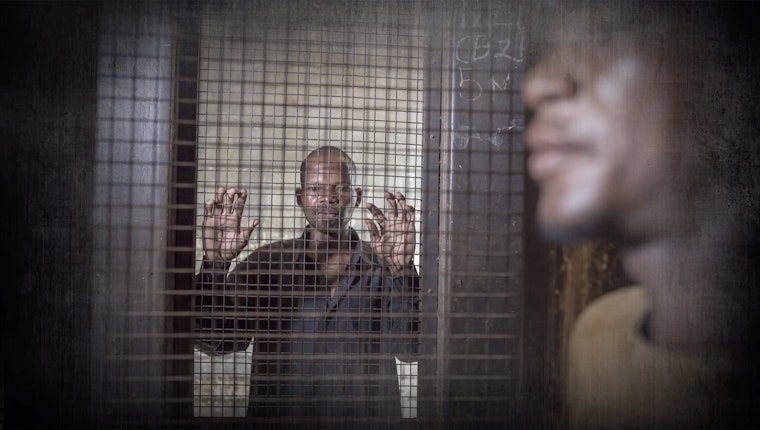
Now, working with a wide network of partners, we are supporting a continent-wide campaign targeting these laws.
Civil society groups, together with the Special Rapporteur for Policing and Prisons at the African Commission on Human and Peoples Rights, are developing a set of legal principles on the Declassification and Decriminalization of Petty Offenses in Africa. They are also preparing to approach the African Court to challenge the consonance of these laws with the African Charter. Legal challenges and advocacy to decriminalize petty offenses are also underway at the national level in Kenya, Ghana, and Sierra Leone, among others. The aim is to ensure that they are gone for good well before their 200th birthday.
Louise Ehlers is a program manager with the Open Society Human Rights Initiative.
